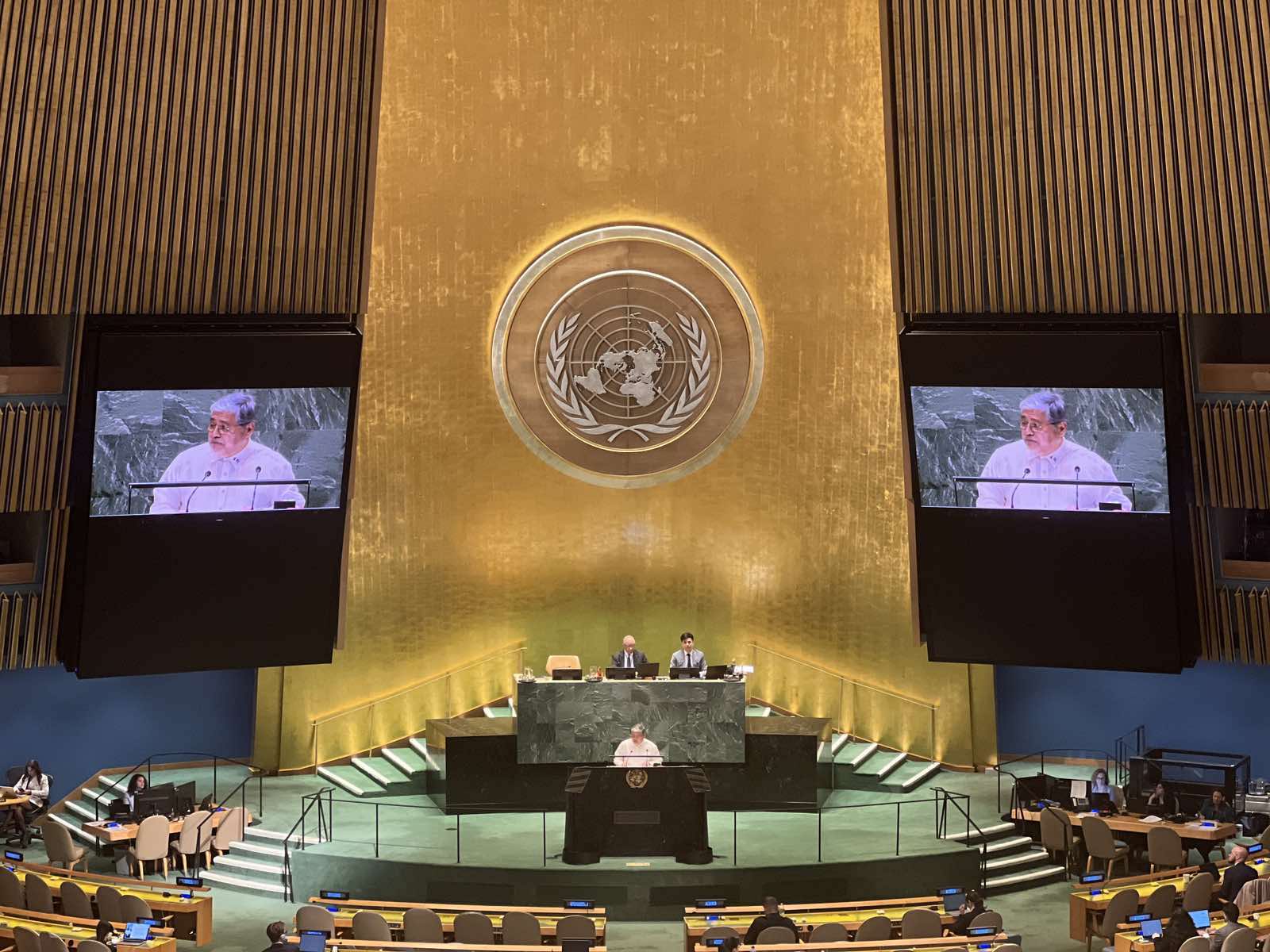PH rejects 'major power rivalry' narratives on WPS in UNGA
The Philippines rebuffed assertions that “major power rivalry” is at play in the South China Sea disputes because these diminish the rights of claimant-countries “to secure their own future.”

Foreign Affairs Secretary Enrique Manalo delivers the Philippine statement at the 79th Session of the United Nations General Assembly (UNGA) in New York City on Saturday, Sept. 28, 2024. (UNIO, New York PM photo)
Department of Foreign Affairs (DFA) Secretary Enrique Manalo made the remarks when he delivered the Philippine National Statement at the General Debate of the 79th Session of the United Nations (UN) General Assembly in New York City.
“We do not accept narratives depicting the South China Sea as a theater of major power rivalry because they all ignore what is an essential truth: all states in this region have a right to determine their own destiny and secure their own future,” he said.
He cited the “irresponsible and dangerous actions” in the West Philippine Sea as he underscored the importance of all member-states’ adherence to the rule of law for the UN to be able to do its role of resolving and managing disputes.
Without naming China, the DFA chief recounted the Philippines’ experiences in seeking to resolve regional disputes through the use of multilateral approaches provided for by the UN.
“The International Court of Justice (ICJ), as a principal organ of the United Nations, together with other international judicial and legal bodies, advances the rule of law. They uphold the primacy of resolving international disputes by peaceful means, not by the threat or use of force,” he said.
The Philippines, he added, coursed through the 1982 UN Convention on the Law of the Sea its present maritime and territorial issues.
He stressed that “the binding 2016 Arbitral Award on the South China Sea constitute the foundation of our policy on the South China Sea.”
“The Award declares that claims exceeding entitlements beyond the limits of UNCLOS have no legal basis,” the DFA chief furthered.
“Despite irresponsible and dangerous actions against our legitimate activities within our own waters and Exclusive Economic Zone, the Philippines remains committed to diplomacy and other peaceful means to settle disputes.”
Manalo expressed the Philippines’ commitment to abide by the UN Charter and the Manila Declaration on the Peaceful Resolution of Disputes “in asserting our sovereignty, sovereign rights and jurisdiction in the South China Sea.”
But for multilateralism to thrive against a backdrop of crises and challenges the world is facing, Manalo maintained that “all states must adhere to the rule of law” and that such times “offer opportunities for reinforcing a rules-based international order.”
UN member-states, he added, “must invest fully” in the UN institutions of ICJ, the Permanent Court of Arbitration (PCA), and other international judicial and legal bodies.
“The growing volume and variety of cases brought before the IC] and the Permanent Court of Arbitration signify the global trust and confidence in their role in peaceful dispute resolution,” the DFA secretary said.
“The use of force and threat of use of force to resolve disputes has no place in our world.”
China, which claims almost the entire South China Sea up to the exclusive economic zones (EEZs) of neighboring countries, has harassed and bullied Philippine vessels in its own EEZs.
In 2016, the Philippines was awarded with the Arbitral Tribunal victory that invalidated the basis of China’s sweeping claims, but Beijing continues to reject this and frowned upon Manila’s step to strengthen its defense ties with old and new allies.